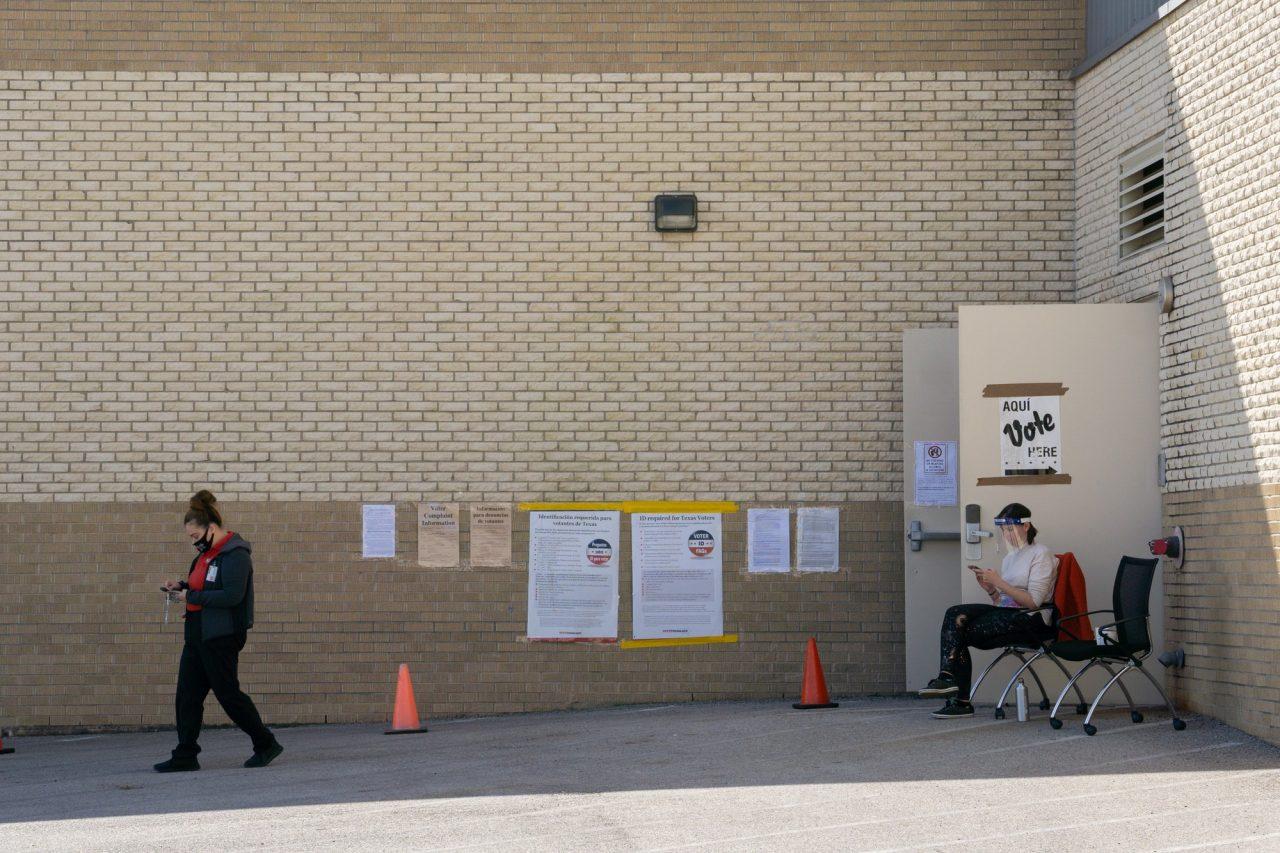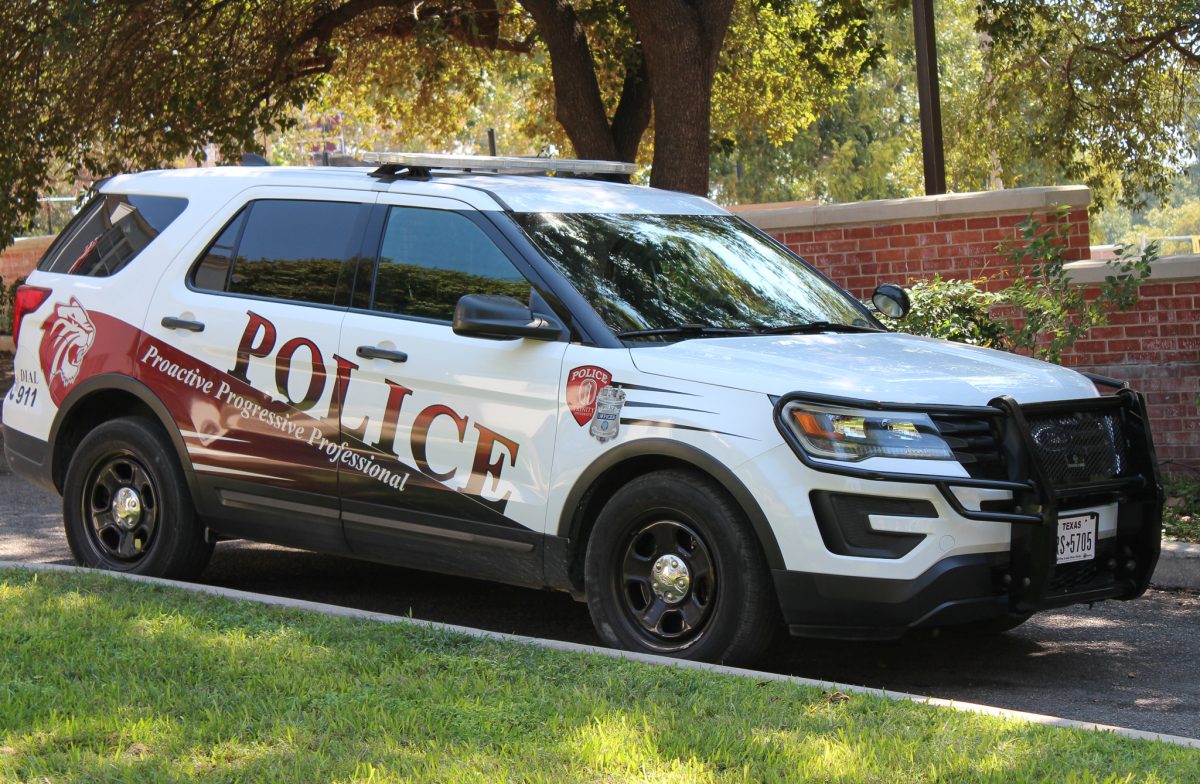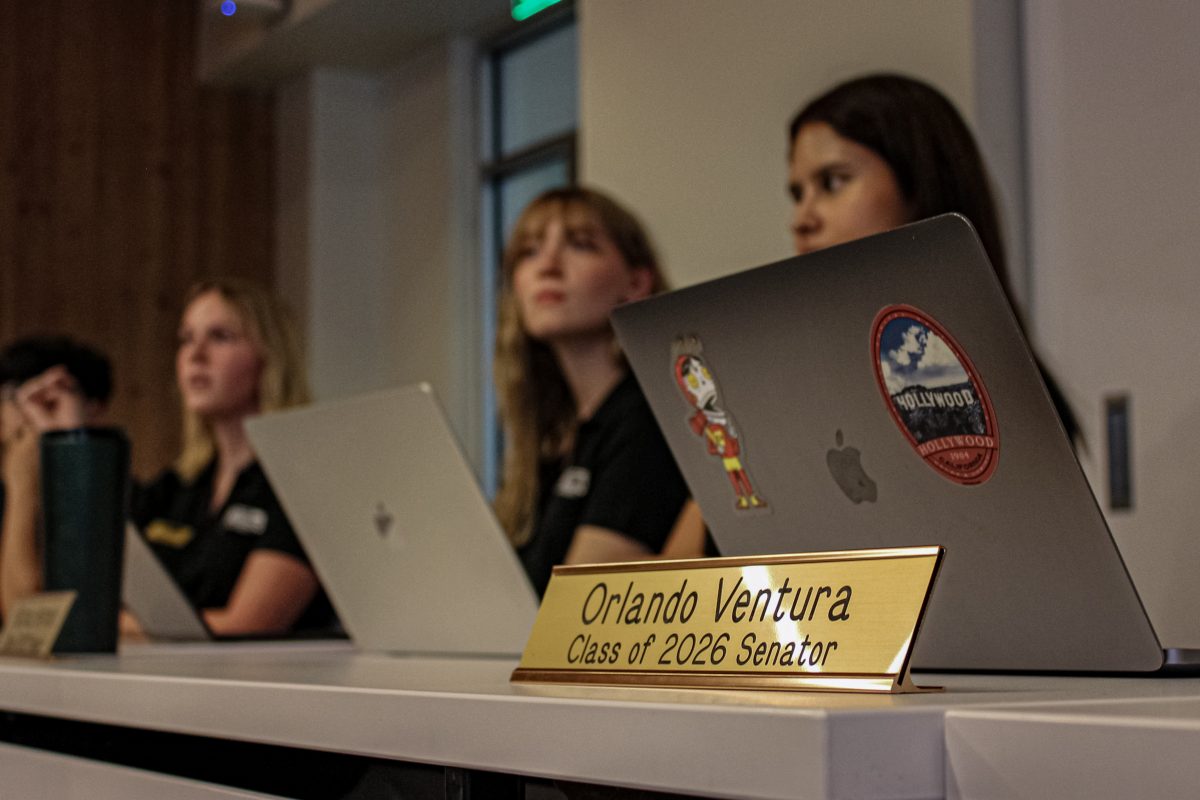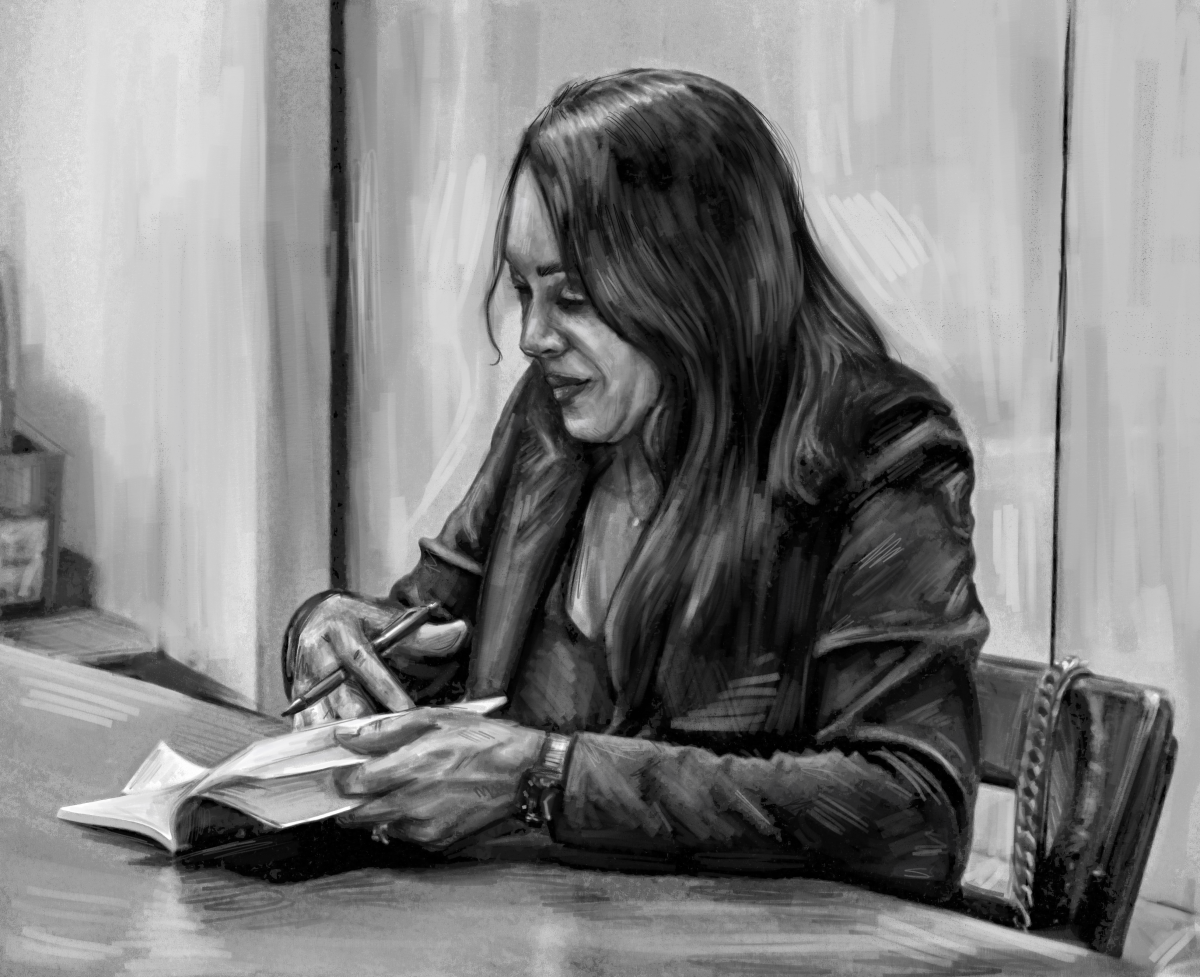photo by Kate Nuelle
Days after election day, students of all political backgrounds are still anxiously waiting for updates on presidential election voting results.
“I’d always imagined, four years ago, that I would be in a totally different spot for the next Trump election, and I just felt like I was almost, Trinity is so problematic, and I feel like I was in the same community again as I was for the first one,” said Gabriella Garriga, senior sociology and economics double-major and member of the TU Census and Voter Engagement Task Force. “And it’s anxiety producing, you know, it’s still not called and it’s the day after.”
An election season unlike one ever seen before on Trinity’s campus, over half of students are living off-campus, eliminating the face-to-face interactions amid major elections known for having caused rifts before.
“It’s probably a mixed blessing because, you know, one of my professors was telling me the air was sucked out of Trinity’s campus when Trump won. Everyone was feeling blue, except for of course the one group of people who were really happy and were all waving flags around and everything — of course they were just making people upset. You obviously really don’t have that [now], there’s only 900 kids on campus and most students aren’t even on campus out of the about 2600 students at Trinity,” said Zach Neeley, senior political science major and vice president for Young Americans for Liberty (YAL). “… But at the same time, there is still kind of there’s not as many opportunities for people to try and engage with one another and bridge the wide divide, because, again, I was kind of surprised by how many votes Trump was getting.”
While some elections results have been called by the Associated Press, questions are being left unanswered for the presidential election, the results of which are likely to be unknown until days after election day.
“Me and [Young Conservatives of Texas (YCT)] were rooting for Chip Roy to win CD-21, since we volunteered for his campaign this go around and in 2018. We were glad to see a win there,” wrote Emma McMahan, senior international studies major, in an email interview. “Some of us believe that President Trump will take the election to the Supreme Court. Another issue that comes up in conversation a lot is about the ballots and auditing. I hope that every ballot is counted accurately and truthfully before the race is over.”
Regardless of political student organization affiliation, each student shared the belief that a win by Democrat presidential nominee Joe Biden is likely.
“I wouldn’t say for sure that he would, but if I had to pick one I would say Biden; I would give him two-thirds of a chance right now. I think especially with him winning Arizona, and having a decent shot at winning Georgia, that he still has the upper-hand right now, and I think he’ll win Michigan as well. It’s not going to be a blowout and we might not know until Friday at the latest,” said Jake Exler, junior political science and economics major and vice president for the Maverick Society.
“As of right now, it really looks like Biden will win, since his electoral votes are higher. However, one thing to keep in mind is that not all ballots have been counted, and there also may be auditing. Also, this election might go to the [Supreme Court], which may take a couple of weeks,” wrote McMahan.
Regardless of which candidate is elected president, Exler stresses that there are lessons to be learned from this year’s election trends.
“Whatever perspective you’re looking at it from, look where Trump and Biden made gains and where they did better than expected, because those areas will likely become more important in the next election,” said Exler. “Arizona is a great example, which hasn’t gone Democrat in a while. Trump doing better in Florida than Arizona is pretty unusual. So, things like that, seeing the trends, Texas is obviously an easy example to look at with that. I just say, don’t just look at the surface level, at who just won the presidential race, and look beyond that at the margins.”
Attention not only should be directed towards the presidential election, suggested Neeley, but towards local- and state-level politics as well.
“Contrary to popular belief, there’s a lot of politics that happen, a lot of decisions that are made that affect us day-to-day that happen at the local and state levels. Don’t disengage, don’t become apathetic. Apathy is the no. 1 reason people don’t engage in politics, and the no. 1 reason people don’t vote,” said Neeley.
Juan Sepúlveda, professor of political science and co-chair of the TU Census and Voter Engagement Task Force, encourages students to not let their political efforts start and end at the voting booth.
“With elections, you have a deadline, there’s a day where it hits, and then it maybe takes a little time to finish the counting of the votes, but then it’s kind of done. The tricky part is that the issues that students are really interested in, there’s no deadline,” said Sepúlveda. “So I tell our folks that the best way to stay connected is to continue to follow and to have the passion that brought you to those issues, to stay on top of them. Let’s get together and talk about them, let’s see how you can be involved in petitioning your government and pushing them and making sure that your voice is getting into the mix.”
While students may need time to recover from the stress brought on by the election, Sepúlveda also suggests to not block it out completely.
“A lot of folks are like, ‘Get me away from it,’ you know, and my advice is, ‘No.’ It’s important to take care of yourself along the way, but why stop now? You’re committed, you’re learning, you have really important issues that were important to you, now you want to see what the next new administration or the current administration is going to do for it, and making sure that your voice is in the mix with that as well,” said Sepúlveda.
Although numbers will not be released for up to eight months, the Trinity community has seen a growing conversation surrounding voting over the past six months, led by the TU Census and Voter Task Force. The task force, comprised of students, faculty and administrators, directed their efforts towards voter education and voter engagement programming.
“In September and early October we focused on voter registration. Specifically, getting accurate information to students (and faculty and staff) about how to register, where to register, and answering individual questions for students with unique situations,” wrote Jamie Thompson, assistant Dean of Student, director of Student involvement and co-chair of the task force, in an email interview. “… And in the final weeks of voter registration, our very own VDRs (volunteer deputy registrars who were trained on campus in February) met one-on-one with students to complete paperwork and submit it to the elections office.”
Garriga, who has served on the task force since spring 2020, acknowledged the unique nature of high task force participation and involvement.
“It was encouraging to see the Trinity community, which is apathetic in general, come together behind a cause. Why the cause had to be voting, something that can be perceived as bipartisan, is a whole topic. I would have liked to see this energy for Black lives matter and what we can do to support food pantries in San Antonio, lots of other things that this could have happened with,” said Garriga. “It is significant that it happened with voting for sure, I do think that it did something, we did get people registered and ready to vote.”
As the nation continues its wait on election results, Sepúlveda recommends that students prioritize their mental health and take breaks as-needed.
“With the record number of voters overall that showed up, it shows that people took care of each other and that the institutions took care of each other,” said Sepúlveda. “I think the big thing right now is to keep track of it all, keep following it, but don’t get lost in it. Take a break from Twitter, don’t get lost in it. Sometimes social media can pull you in and take you down rabbit holes that you don’t need to be going into.”
Amid uncertainty and bipartisan tension, both McMahan and Neeley express the sentiment that everything will be okay in the long-run.
“I am almost certain that everything and everyone will survive this election. We survived the last 4 years, and coronavirus has made us stronger than ever. We can definitely survive this election,” wrote McMahan. “If my candidate does not win, I will be okay. I believe in America, and I am lucky to be here, to have my voice heard.”
“This isn’t to say that the presidential election is inconsequential, it matters who the president is, but it’s important to just have some perspective,” said Neeley. “Everything’s going to be okay, find your support groups, take a deep breath and realize that there’s a lot more than the presidency. That’s just an important thing to remember.”








